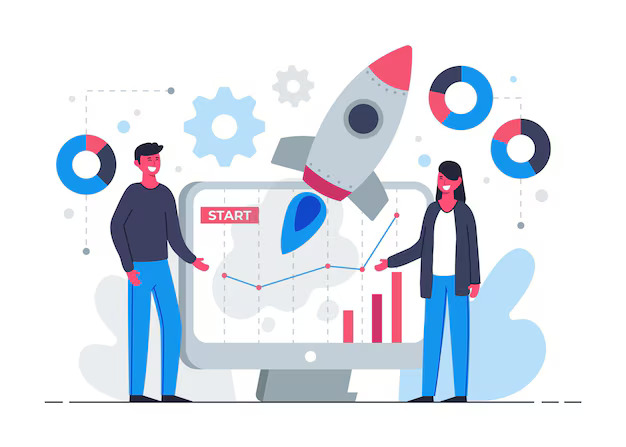In today’s digital landscape, businesses are increasingly shifting towards performance marketing to achieve measurable results and maximize return on investment (ROI). But what exactly is performance marketing, and how can it help your business grow? In this blog, we’ll delve into the core concepts of performance marketing and explore why it has become a go-to strategy for businesses aiming to scale.
What is Performance Marketing?
Performance marketing is a data-driven strategy where advertisers pay only when specific actions, such as clicks, leads, or sales, are completed. Unlike traditional marketing, which may focus on broad brand awareness, performance marketing is focused on producing tangible, measurable outcomes. It revolves around using various digital channels like social media, search engines, and affiliate networks, with clear metrics to evaluate success.
Why Performance Marketing?
Measurable Results
Every action in performance marketing is trackable. Whether it’s the number of clicks on a banner ad, form submissions, or purchases made, advertisers can assess each campaign’s effectiveness in real-time. This transparency makes it easier to identify what works and where resources should be allocated.
Read Also: How To Start Selling on Amazon India : A Step by Step Guide
Cost Efficiency
With performance marketing, businesses only pay for specific outcomes. For example, instead of paying for an ad just to be displayed, you pay when a potential customer clicks on it or makes a purchase. This ensures that marketing spend is directly tied to performance, eliminating wasted budgets on ineffective strategies.
Flexibility and Scalability
One of the biggest advantages of performance marketing is its adaptability. Campaigns can be optimized mid-flight to improve results, based on real-time data. This flexibility allows businesses to scale their campaigns efficiently as they see which approaches yield the best ROI.
Diverse Channels
Performance marketing spans multiple channels including:
Paid Search (PPC): Ads that appear on search engines based on specific keywords.
Social Media Advertising: Targeted ads displayed on platforms like Facebook, Instagram, and LinkedIn.
Affiliate Marketing: Partnering with affiliates who promote your product in exchange for commissions.
Display Advertising: Banner ads shown on relevant websites or apps.
Email Marketing: Performance-driven campaigns focusing on lead generation or nurturing.
Each of these channels can be leveraged depending on your business goals, whether you aim for lead generation, increasing online sales, or growing brand awareness.
The Key Components of a Successful Performance Marketing Campaign
1. Clear Objectives
The foundation of a successful campaign is setting clear and measurable goals. Whether you aim to drive traffic, generate leads, or increase conversions, defining your objectives ensures the campaign stays focused on what matters most to your business.
2. Targeted Audience
Understanding your audience is critical. Performance marketing allows you to target highly specific demographics based on factors like age, location, interests, and behavior. This precision ensures that your ads reach the right people at the right time, increasing the likelihood of conversion.
3. Compelling Creative
Performance marketing isn’t just about numbers; it’s about engaging your audience. Your ad copy, images, and calls-to-action (CTA) must be persuasive and tailored to the audience’s needs to maximize engagement.
4. Data and Analytics
Performance marketing thrives on data. Tools like Google Analytics, Facebook Ads Manager, and other performance tracking platforms provide insights into campaign performance. By continuously analyzing these metrics, businesses can make informed decisions on optimizing campaigns for better results.
5. Conversion Optimization
It’s not just about driving traffic but ensuring that visitors convert into customers. Optimizing landing pages, improving user experience (UX), and testing various CTAs can significantly boost conversion rates.
The Future of Performance Marketing
As businesses continue to evolve in the digital age, performance marketing is becoming a crucial part of growth strategies. The integration of artificial intelligence (AI), machine learning, and automation tools allows for more accurate targeting, better personalization, and smarter budget allocation. These advancements will enable businesses to get even more out of their performance marketing efforts in the coming years.
Conclusion
Performance marketing offers a powerful, results-oriented approach that can drive measurable business growth. By focusing on key performance indicators (KPIs) like clicks, conversions, and sales, you ensure that your marketing spend directly impacts your bottom line. Whether you’re a small business or a large enterprise, incorporating performance marketing into your strategy can help you achieve your goals faster and more efficiently.
